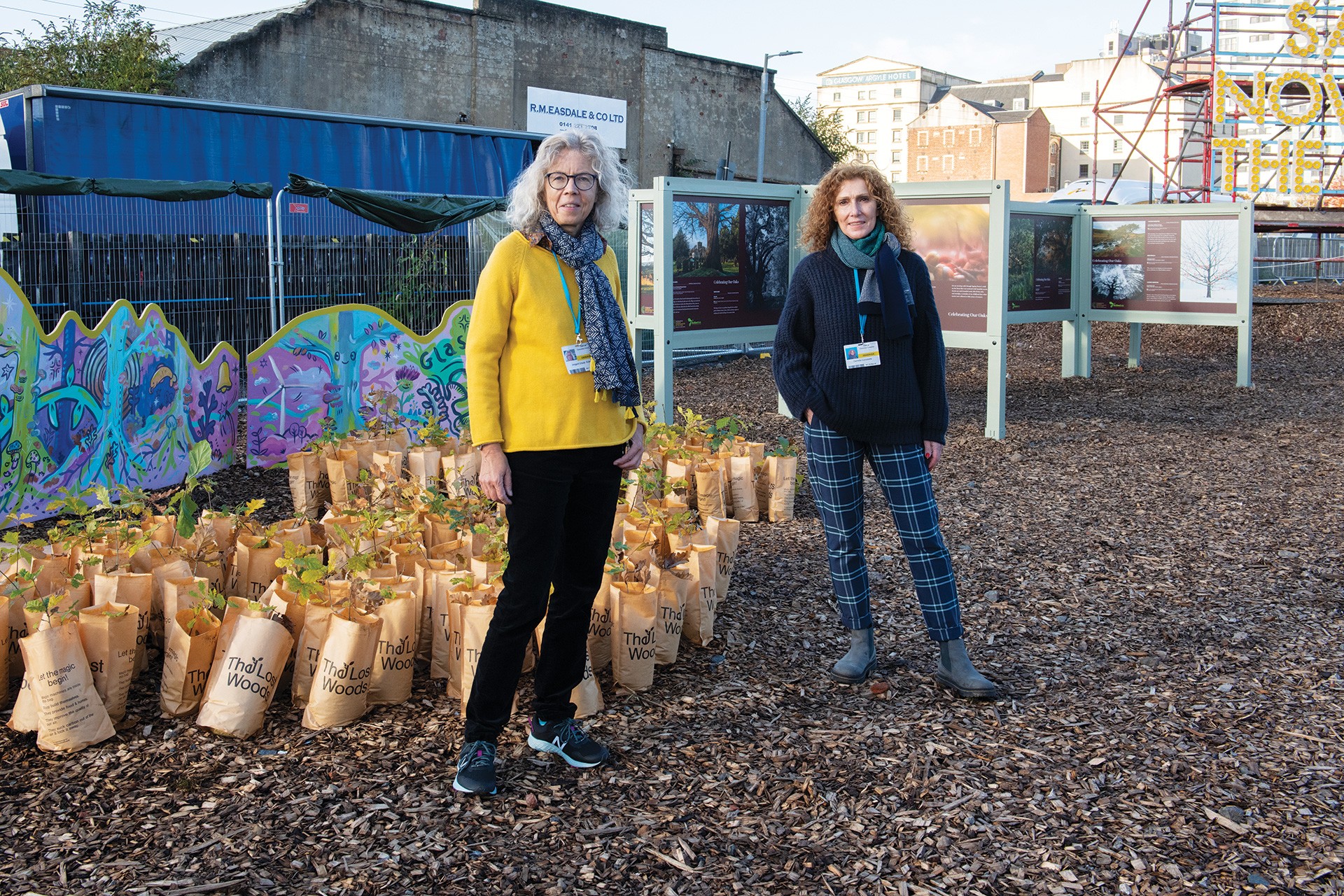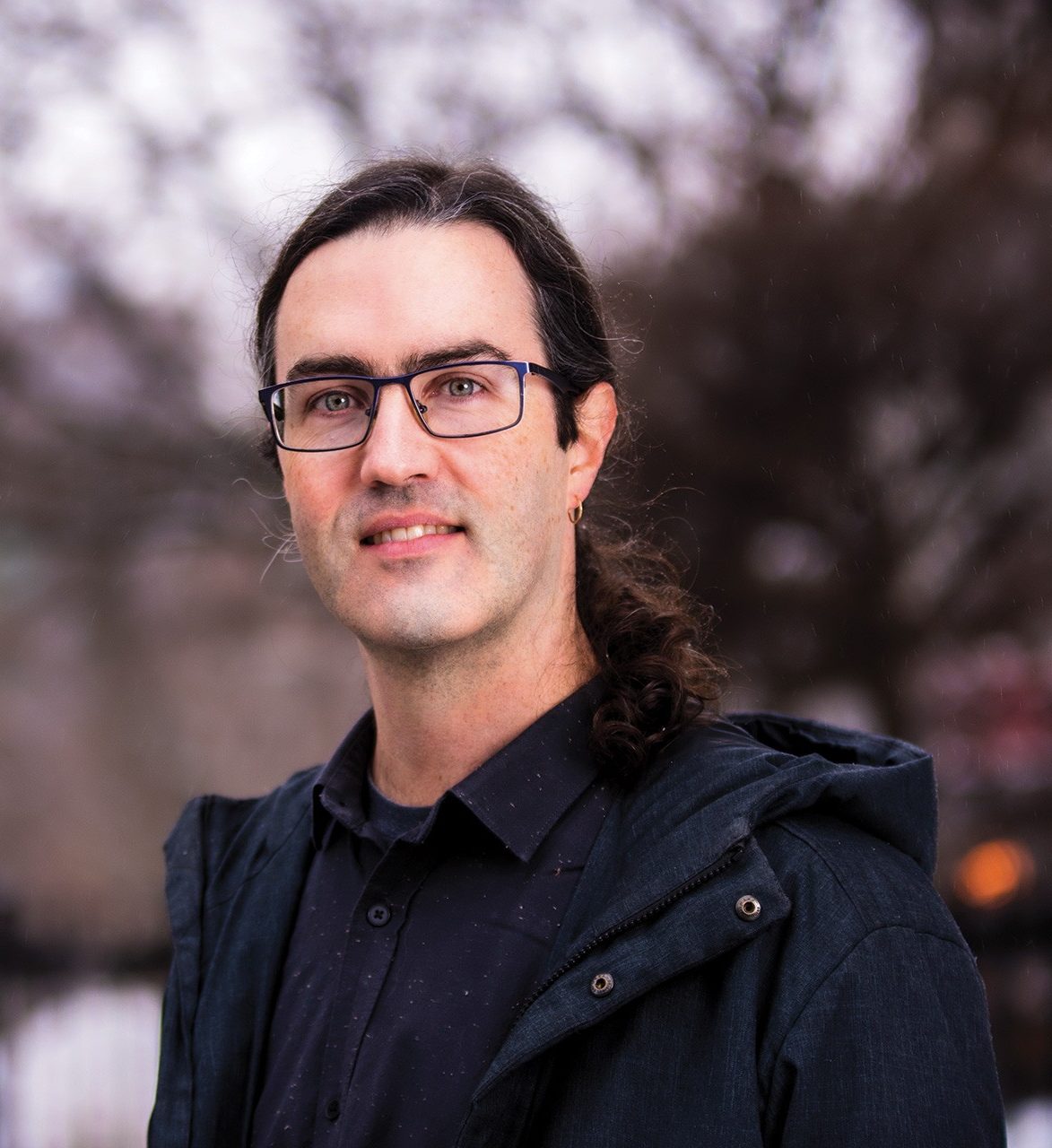NEXT-GEN
SUSTAINABILITY
Leading the way for a more resilient world
2022 HIGHLIGHTS
Concordia among world’s best for support of the SDGs
The university placed 62nd out of 1,115 institutions worldwide — a significant increase from 2020 -— in the 2021 Times Higher Education (THE) Impact Rankings. The THE Impact Rankings aim to quantify the higher education sector’s progress toward achieving the 17 United Nations Sustainable Development Goals (SDGs), which include tackling climate change, poverty, inequality and resource depletion.
Concordia landed in the world’s top 25 in three SDG categories: Reduced Inequalities, which seeks to lessen relative income, social, political and other disparities within and among countries; Climate Action, which encourages urgent steps to combat climate change and its impacts; and Sustainable Cities and Communities, which strives for more inclusive, safe, resilient and eco-friendly urban settings.
Prof’s research bridges eco-art, design and architecture in public spaces
Carmela Cucuzzella, Concordia University Research Chair in Integrated Design, Ecology and Sustainability (IDEAS) for the Built Environment (Tier 2), examines how architectural and urban design processes help cities achieve the SDGs.
Among other research efforts, “I’m interested in understanding how technological, social, cultural and environmental questions are integrated in architectural and urban space design,” says Cucuzzella, also co-director of the Next-Generation Cities Institute. She explains that this work focuses on how practitioners balance the sometimes-competing demands around ecological issues, accessibility, social inclusiveness and others.
 Ursula Eicker and Carmela Cucuzzella. Photo by Stephanie Gibson
Ursula Eicker and Carmela Cucuzzella. Photo by Stephanie Gibson
Concordia climate change researchers at COP26
A team of Concordians joined government and thought leaders at the 2021 United Nations climate change conference, COP26, in Glasgow, Scotland.
Concordia delegation head Ursula Eicker, Canada Excellence Research Chair in Smart, Sustainable and Resilient Communities and Cities, was invited to meet Quebec Premier François Legault alongside other Quebec delegates. “There were opportunities to disseminate the work we are doing on next-generation cities to a large international audience,” she says.
The delegation also included Matthias Fritsch, professor of philosophy, and Carmela Cucuzzella, Concordia University Research Chair in Integrated Design and Sustainability for the Built Environment (Tier 2).
Researchers show that AI can help maximize urban wind energy
Sustainable cities of the future will rely on an array of energy technology solutions, including some, like urban wind power, that are still in their infancy. As urban wind power involves the integration of wind turbines into a building’s conception at its earliest stages, two Concordia researchers have created a tool that could help expedite the task.
In their paper published in the journal Building and Environment, Concordia graduate Stéphanie Higgins, MASc 20, and Theodore Stathopoulos, professor of building, civil and environmental engineering, presented a method that uses artificial intelligence (AI) to help builders determine where to place turbines in order to maximize their energy production.

Damon Matthews
Damon Matthews named one of the world’s most influential climate scientists
Damon Matthews, professor of geography, planning and environment and Concordia University Research Chair in Climate Science and Sustainability (Tier 1), placed fifth among Canadians and in the top 300 globally in the Reuters Hot List of top 1,000 climate scientists worldwide.
Matthews heads the Leadership in Environmental and Digital Innovation for Sustainability (LEADS) program. “We’re trying to provide students with the ability to interact with the digital world in a way that will further their own sustainability research goals and also connect that research more tangibly to societal challenges,” he says.
New course engages with SDGs
James Grant, professor of biology, co-director of the Loyola Sustainability Research Centre and principal of the Loyola College for Diversity and Sustainability, and Rebecca Tittler, coordinator for both the research centre and the college, have created a course to engage students with the SDGs.
Perspectives on the United Nations Sustainable Development Goals is taught by lecturer Peter Graham, GrDip 05, Cert 09, MA 10, MA 14. “My goal has been to try to sensitize students to the challenges of operationalizing the goals and that there are many obstacles still to be overcome — and that most of the obstacles are cultural or even cognitive,” he explains.
Summer School pilot project welcomes 27 participants
Concordia partnered with the Centre interdisciplinaire de recherche en opérationnalisation du développement durable and other institutions to virtually offer the CIRODD Summer School in Societal Transformation.
The bilingual pilot project instructed its 27 participants, including students from Concordia and other universities, on ways to help municipalities and communities successfully realize the UN’s SDGs.
CIRODD is a Quebec-based research, development and reference centre. “Our overall mission and objective is to operationalize and implement sustainable development in an interdisciplinary, inter-sectorial and multidisciplinary fashion,” explains Stéphanie Jagou, the centre’s senior project manager.